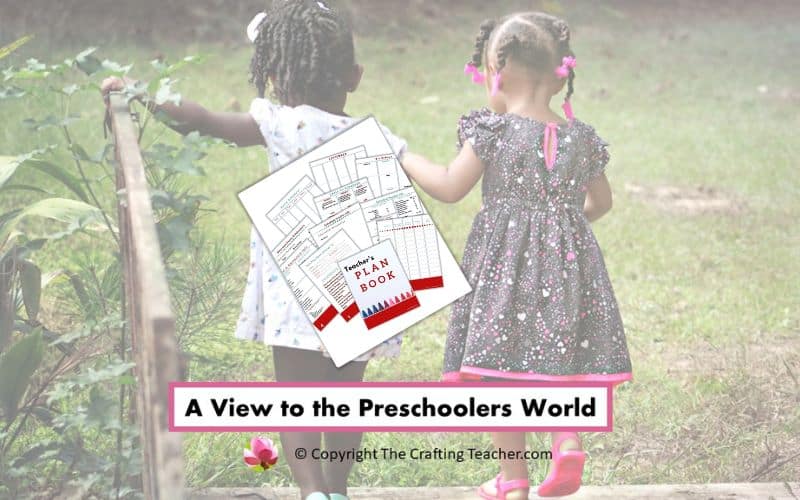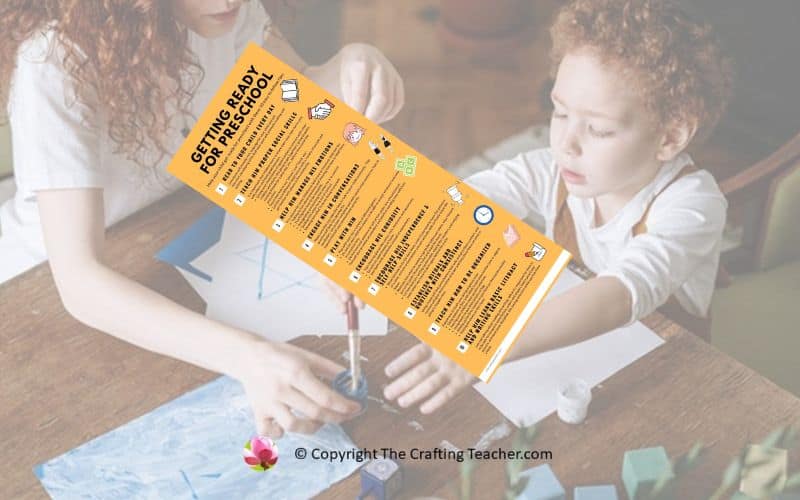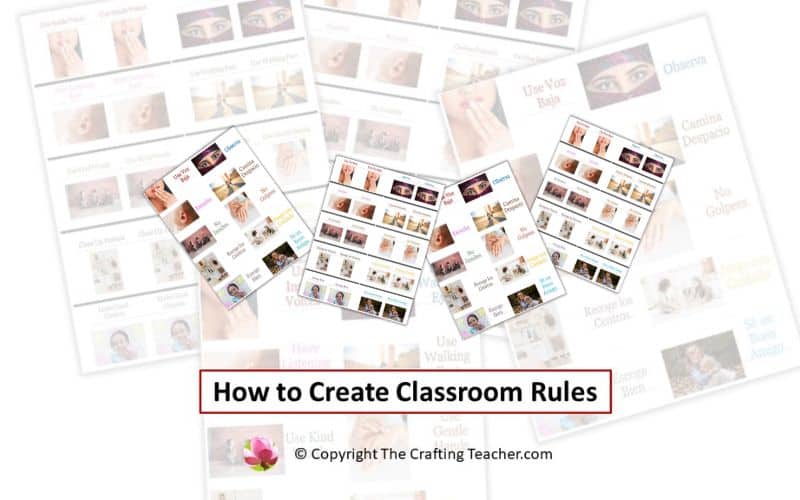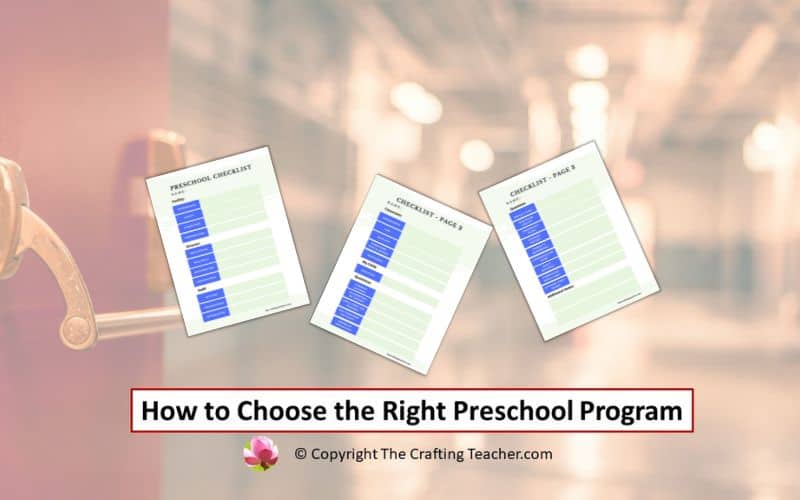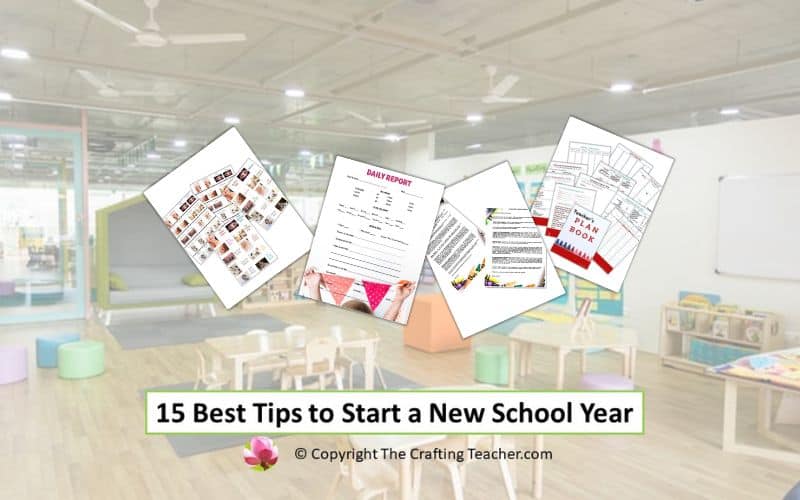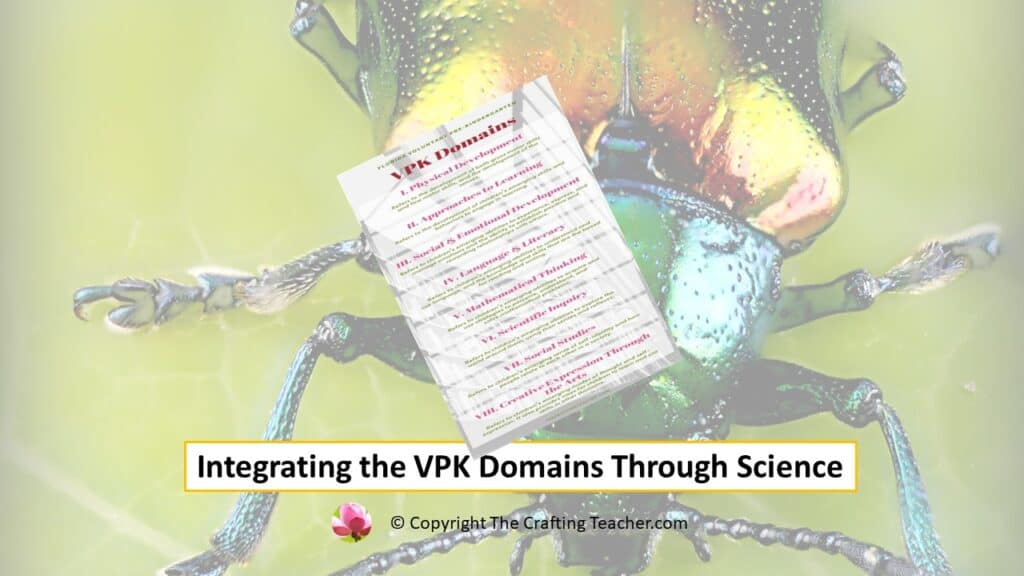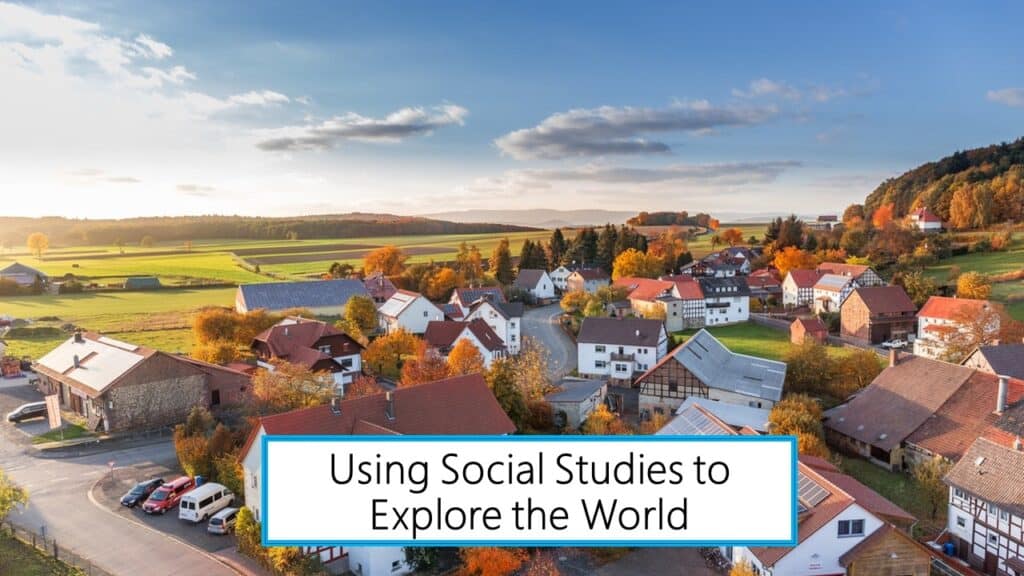Affiliate Disclosure: “This post contains affiliate links, which means I receive a small commission, at no extra cost to you, if you make a purchase using those links.”
A View to the Preschoolers World – the Beginners Guide
As preschool teachers and parents, we need to understand and have a clear view of how preschoolers see the world, their different developmental stages, and how we can help them develop to their full potential.
Let’s start by defining a preschooler. A preschooler is a child who is too young to go to school but too old to be considered an infant or a toddler. In other words, a preschooler is a child who is three to four years old.
Cognitive development starts from the moment a child is born, and preschool teachers and parents play an extremely important role in helping children grow and expand their knowledge of the world around them. What they do will set the foundation for preschoolers’ growth and how they will be as adults.
In this article, we will examine different areas that involve preschoolers’ cognitive development and their role in preschoolers’ growth.
What is Cognitive Development?
Cognitive development is the ability to gain knowledge. The good news is that every child is born ready to learn, but how far this development reaches will depend on his environment, his opportunities to learn and experiment with new things, and how rich and positive his interactions with the adults and peers in his life are.
I’m sure you have observed a preschooler working on a puzzle. The child is trying to put the pieces in the correct place but cannot do it. He is determined to complete that puzzle and continues to try. At some point, the child figures out the proper shape he needs. He gains cognitive skills.
Every time a preschooler makes a connection and learns something, that child is growing his cognitive development in one or more of those four areas. These areas interact and feed on each other to help children develop their cognitive skills to their full potential.
An article published in Verywell Mind explains that “Jean Piaget’s theory of cognitive development suggests that children move through four stages of mental development. His theory focuses not only on understanding how children acquire knowledge but also on understanding the nature of intelligence.”
What Areas Involved the Cognitive Development of Preschoolers?
Children grow and develop very fast during their first five years across the four main areas of development, also called domains. These areas or domains are Cognitive Development, Social-Emotional Development, Physical Development, and Language Development.
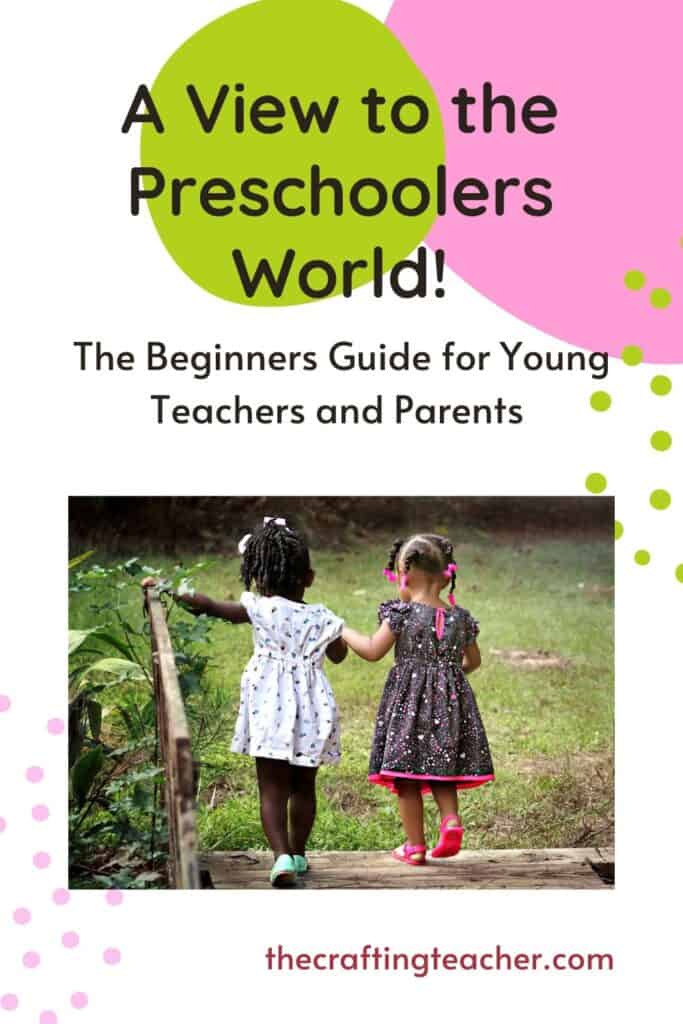
Cognitive Development
This area may be the most important one. It involves children’s intellectual abilities and creativity. This means the ability children have to:
- Pay attention to their surroundings.
- Understand their environment.
- Process their thoughts.
- Develop their memories.
- Make and implement plans.
Social-Emotional Development
This area involves how children interact with other people and how they see themselves. This means the ability children have to:
- Develop friendships.
- Behave appropriately and respectfully,
- Know how to love, have empathy, and be compassionate,
- Have positive self-esteem and
- Recognize their emotions and the emotions of others around them.
Physical Development
This area involves the children’s physical development, including their gross (large) and fine (small) motor skills. This means the ability children have to:
- Control their large muscles to run, jump, climb, etc.
- Control their small muscles to grasp, color, trace, write, etc.
Language Development
The Language Development area not only involves speaking, reading, and writing. Those skills form a considerable part of this area, but it’s so much more.
This area also involves:
- the way children understand spoken words,
- their ability to express what they want to say in cohesive and complete sentences and
- their verbal and non-verbal interactions with other people.
This area depends on all the other areas of development to evolve, and its development will vary from child to child.

Tips for Success in Teaching Preschoolers
- Constantly interact with the children through play and conversation! The best thing you can do is spend quality time with them and be present in their lives to help them succeed.
- Observe your preschoolers often to become aware of their interests and needs. That way, you will be able to provide a rich environment and positive interactions, helping each of your preschoolers reach their full potential in all areas of early childhood development.
- Never be punitive when your preschoolers make a mistake, or they will avoid taking chances trying to figure out their environment. Instead, be positive and supportive, encouraging them to facilitate their cognitive development.
Common Questions About Preschoolers
Young teachers and parents might not know exactly how to stimulate their preschoolers’ minds so that their cognitive development reaches its full potential. Let me try to answer some of your questions.
What can I do to help my preschoolers with their Cognitive Development?
This is very easy to accomplish. You only need to provide a rich environment and plenty of opportunities for them to learn new things and develop their curiosity, creativity, and eagerness to learn, such as going to parks, introducing them to new and positive situations, and giving them different types of materials like puzzles, blocks, and paint and the freedom to create things.
Is there a way for me to help my preschoolers with their Social-Emotional Development?
Children need the opportunity and support to learn new things, experiment, and discover their capabilities. The more they try to succeed, the more likely they are to develop positive self-esteem and social abilities.
The best way to help your preschoolers develop this area is to be there for them. Positively interact with them, talking to them and participating in their games and activities. Please encourage them to try new things and be patient, loving, and responsive.
How do I help my preschoolers with their Physical Development?
You can help your preschoolers develop this area by creating a safe, healthy, and stimulating environment where they are encouraged to play and investigate, with plenty of opportunities to do various activities that promote their muscle development, both inside and outside the classroom and at home.
How can I create opportunities to help my preschoolers develop their Language and Literacy skills?
The best way for you to help your preschoolers develop these skills is by showing them how to do it. Talk to them constantly, not at them. Ask them open-ended questions using what_____?, how_______?, when_______? Show them how to pronounce words and respectfully complete their sentences, read plenty of books to them, and answer ALL their questions.
The Last Thing You Need to Know About Preschoolers
There is no magic formula for teaching a preschooler. Every child is different and unique, and it’s our job as preschool teachers and parents to pay close attention to our children, observe their specific characteristics and needs, and determine the best ways for each of them to learn.
The most important thing you must remember is that any environment can support a preschooler’s development if the teachers and parents provide them with multiple and rich opportunities to learn and try new things and always help them positively to make the connections they need with their environment.
Stay true to yourself, and remember that anything is possible if you try.
Be happy, safe, and creative. I wish you well.
Love,

P.D. Thank you for visiting. If you like this post, please share it with your friends. I will genuinely appreciate it. Also, if you have any ideas or suggestions, please comment via any of the links below. I am very interested in what you have to say.
Other Posts That You Might Like:

